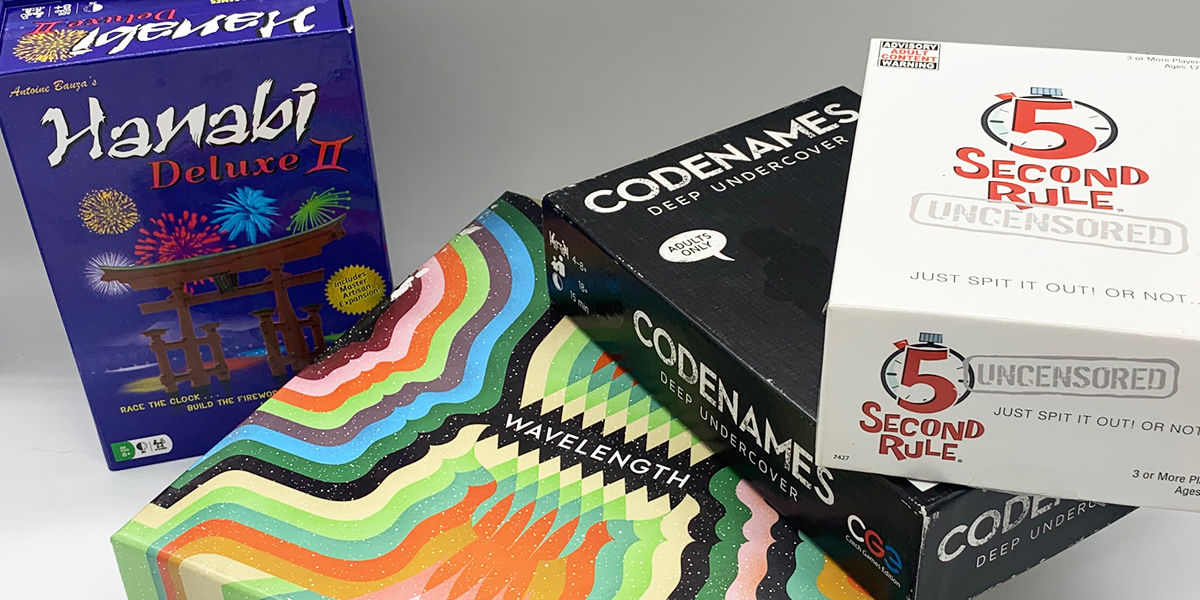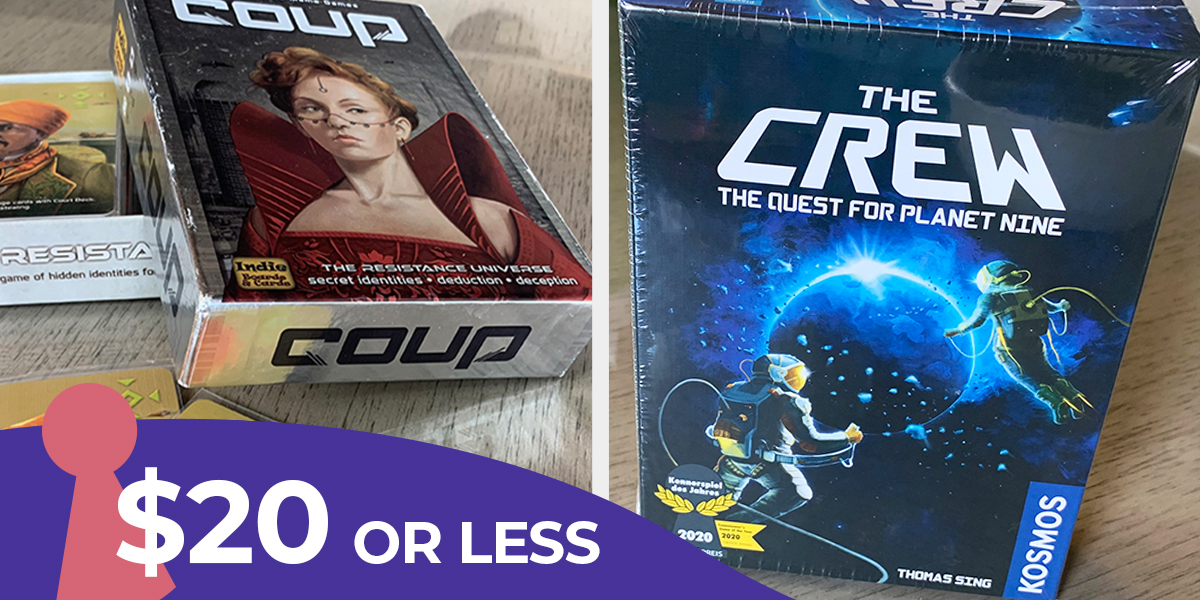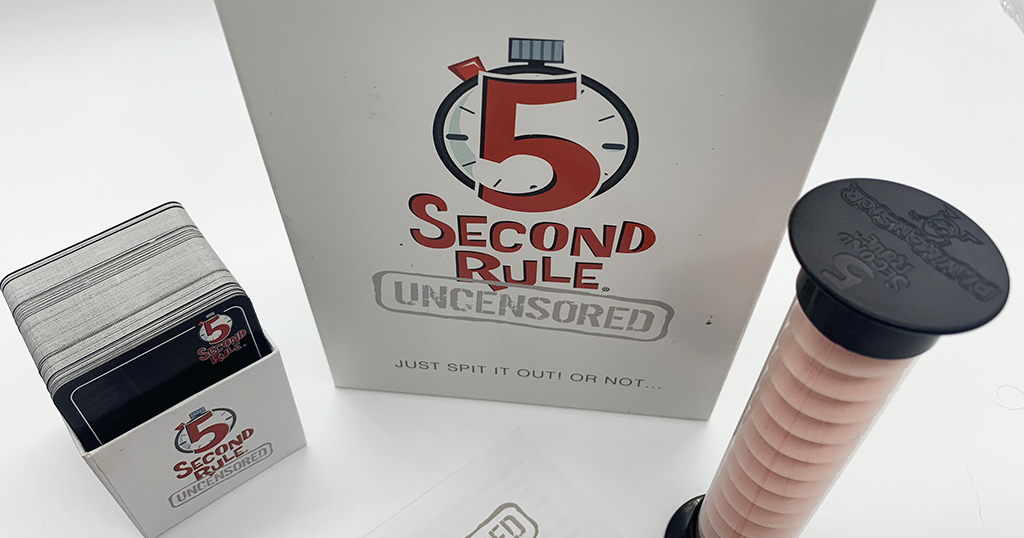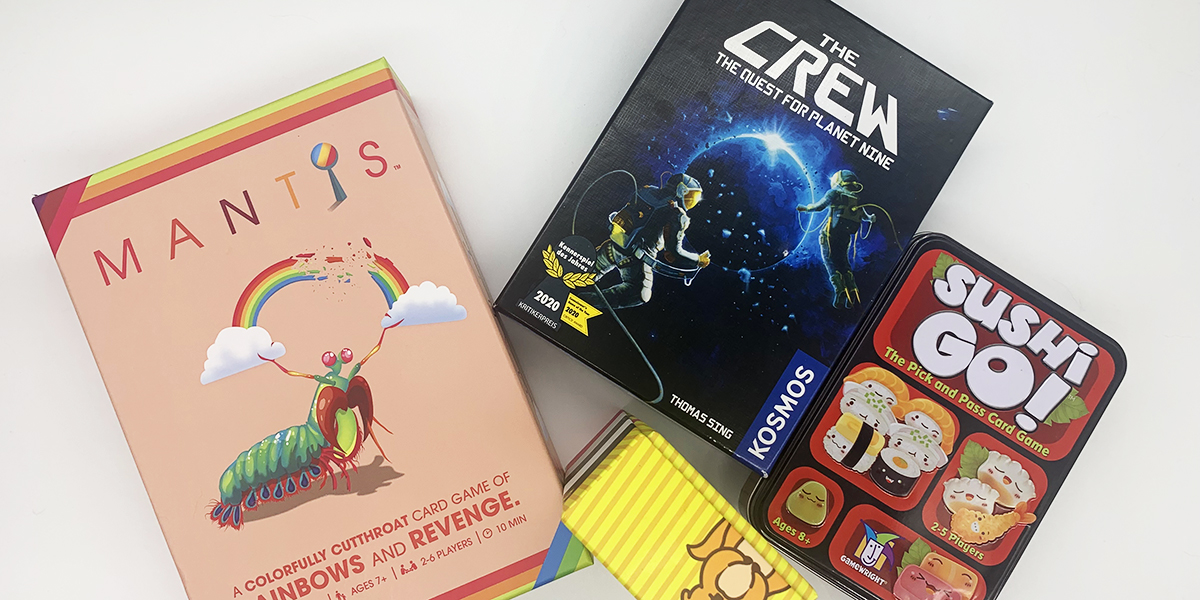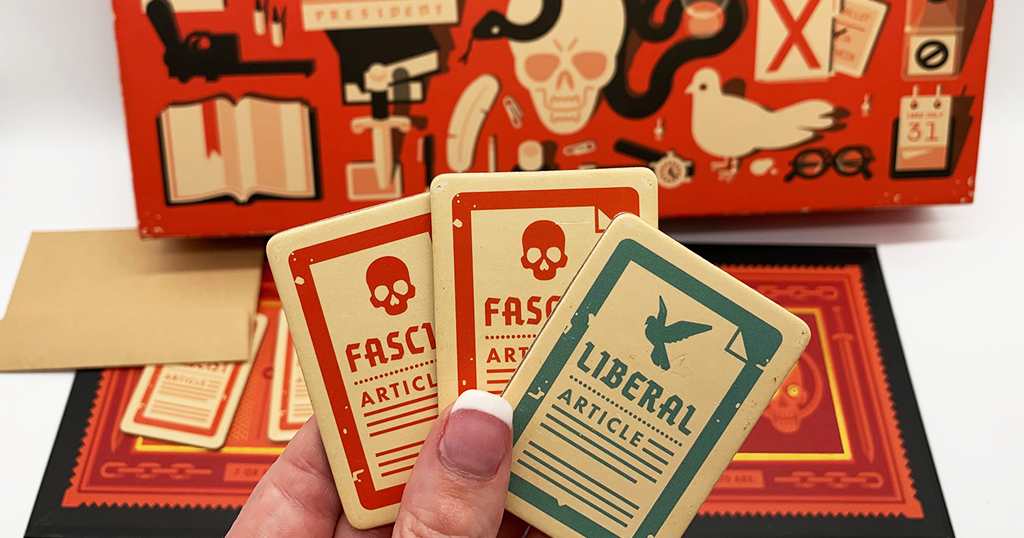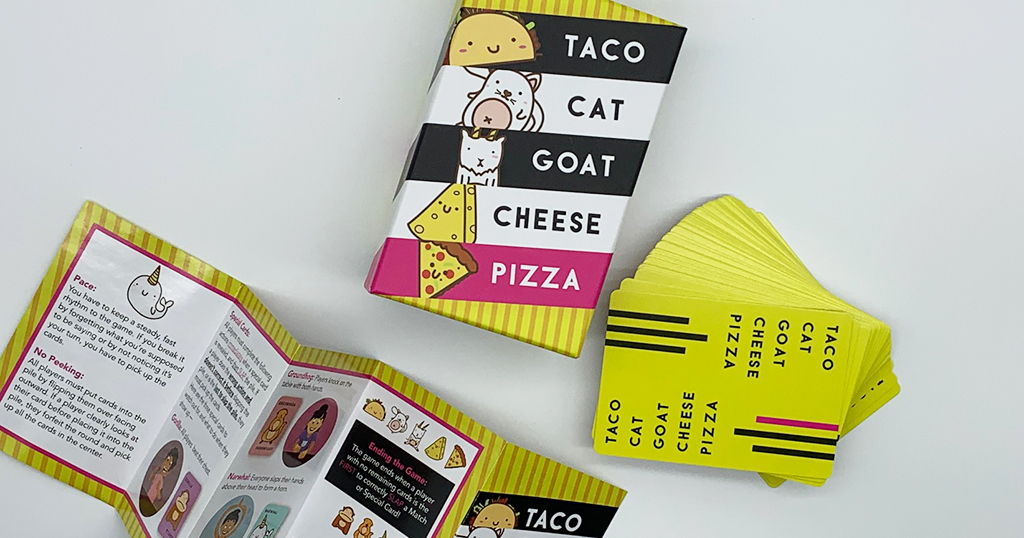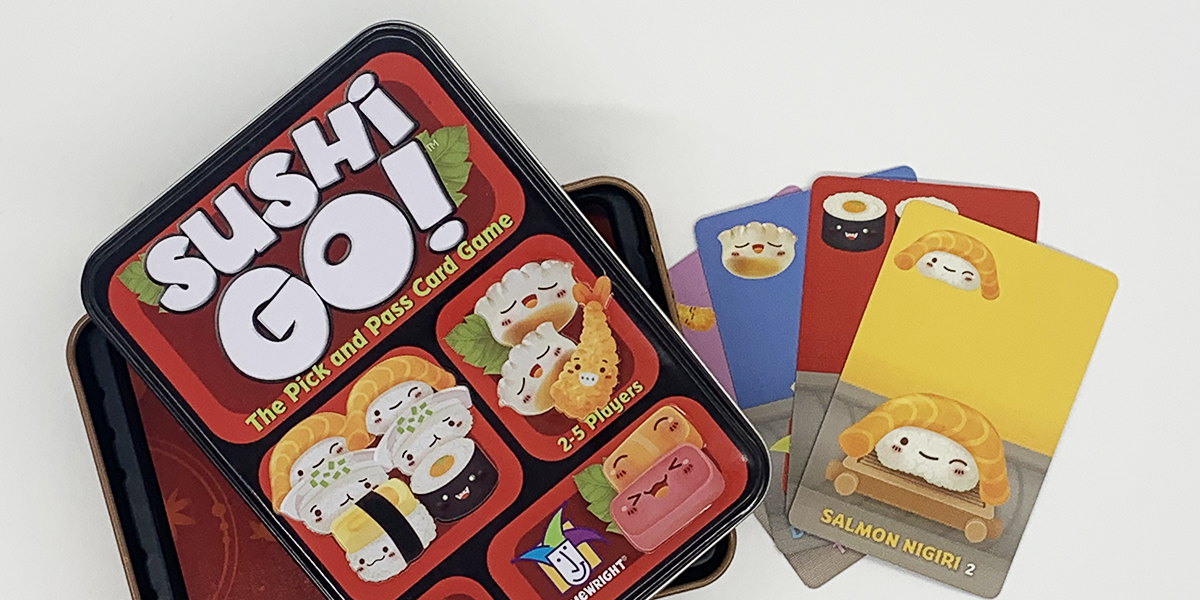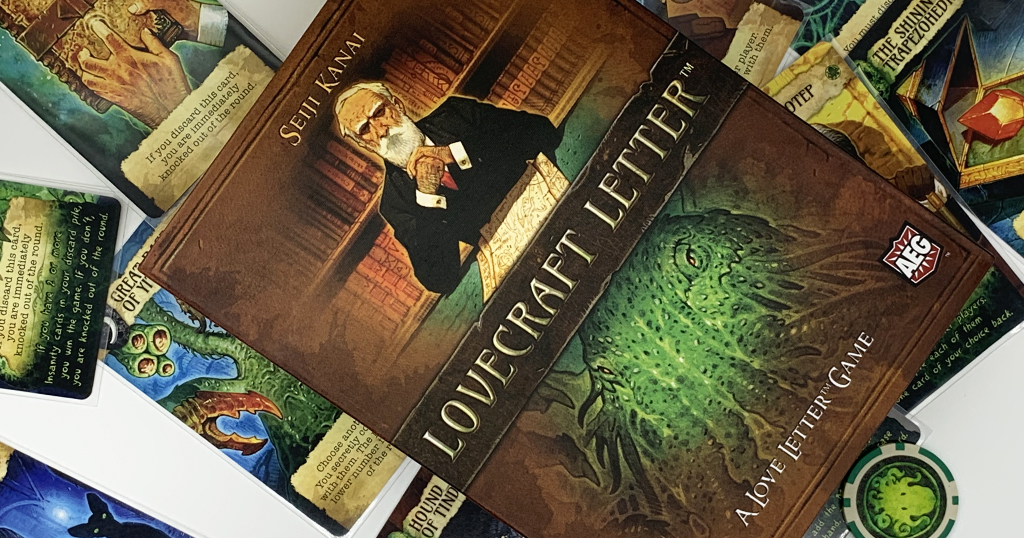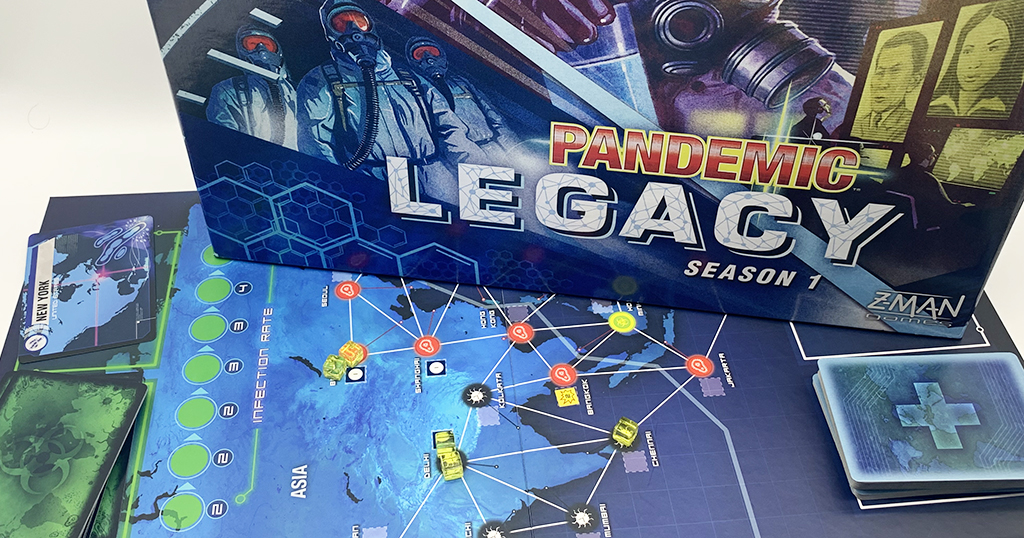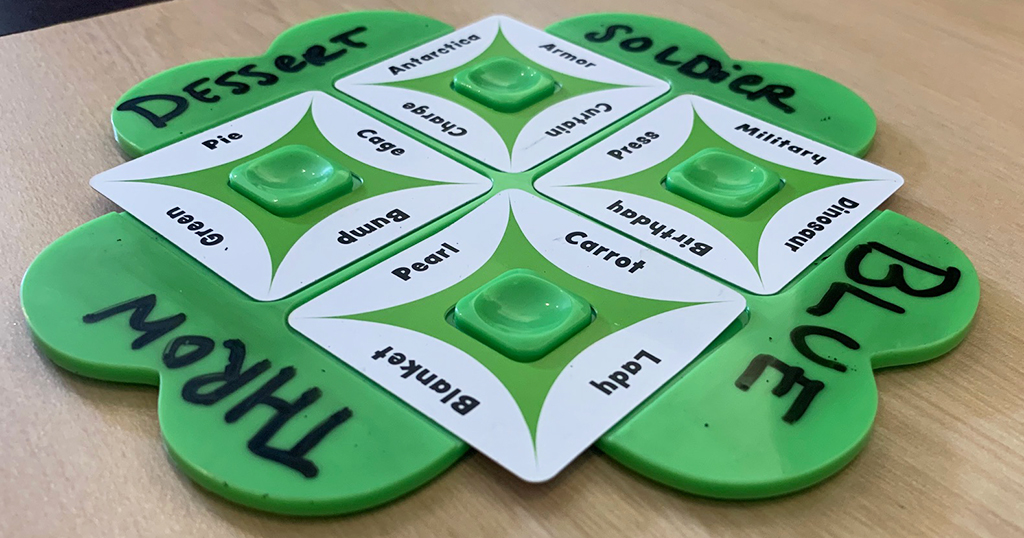There’s nothing better than finding a board game you absolutely love.
But inevitably, you want more. Where do you go next?
Well, if you’re looking for similar board games to Codenames, you’ve come to the right place.
What is Codenames?
Codenames is a party game with a spy theme that involves word association. The game mostly consists of clue cards that form a 5×5 grid of words on the table.
Players break up into two teams, each with their own “spymaster”.
A spymaster’s job is to get their teammates to correctly guess the correct target words from the grid using only one-word clues. The difficult part is trying to connect multiple cards to a single clue.
Also, spymasters must be careful to avoid hitting the wrong target.
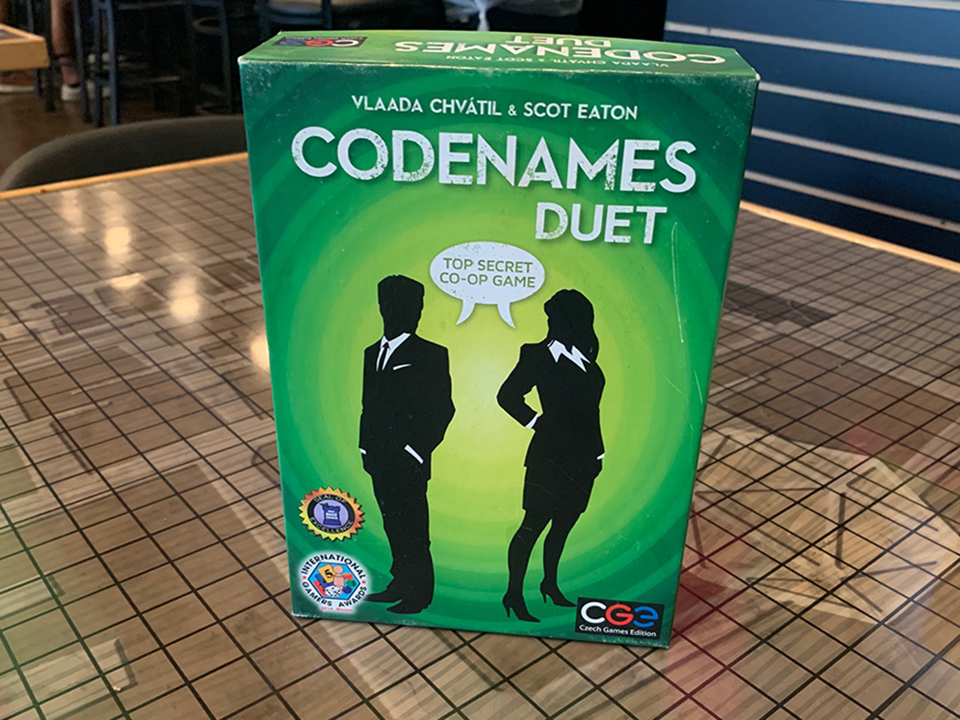
Which is better, Codenames or Codenames Pictures?
If you love Codenames, you’ve probably thought about getting one of the other versions of the original game.
For example, you can also purchase versions of the game like Codenames Pictures, Codenames Disney and Codenames Marvel. Additionally, they offer Codenames Deep Undercover for a more mature audience and Codenames Duet as a cooperative two-player version.
However, I find that some of the niche versions of Codenames contain cards that are so similar that they can make the game challenging, and not necessarily in a way that makes the game better.
I like original Codenames the best, followed by Codenames Pictures as a close second. Of course, you may have a different preference, so it’s certainly worth play testing for yourself.
Why is Codenames so popular?
Well, it’s a lot of fun and the game accommodates large groups. It has simple rules and is largely for players of all ages. Generally speaking, it’s probably one of the best party games out there, or at least one of the most popular.
The good news is, there are a lot of board games that are similar to Codenames. So, here’s a list of games I think you will like if you love the game Codenames.
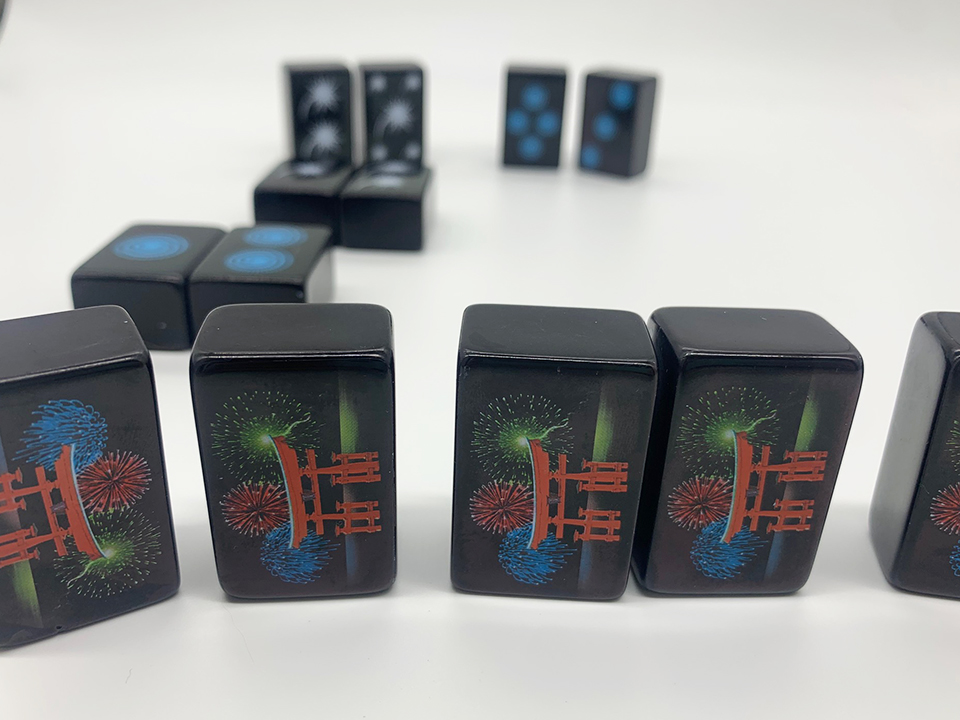
14. Hanabi
This game is basically a puzzle game that involves little to no talking. However, I really enjoy playing Hanabi.
In this cooperative game, players have a hand of cards (or tiles) that they cannot see. In other words, your own hand will face away from you.
Taking turns, players must play their cards (or tiles) in the correct numbered sequence. Your teammates will offer limited clues to let you what to play from your hand.
The game is surprisingly challenging, almost like a strategy game, but still fun and light.
How it’s similar to Codenames: The game is “quiet” like Codenames and involves critical thinking.
How it’s different: It’s a cooperative game and does not use word association.
13. The Chameleon
This game also involves guessing a “secret word”, but it’s more of a deduction game.
At the start of the game, players are told a secret word and will take turns giving a one-word clue for that secret word. However, the Chameleon will not know the word and will simply try to blend in and match the clues of the other players.
The point of the game is to figure out who the Chameleon is based on the clues. This game is fast and fun and a solid option for your next family board game.
The Chameleon plays 3-8 players and has a 4.7-star rating on Amazon.
How it’s similar to Codenames: It involves one-word clues.
How it’s different: It has a hidden roles element.
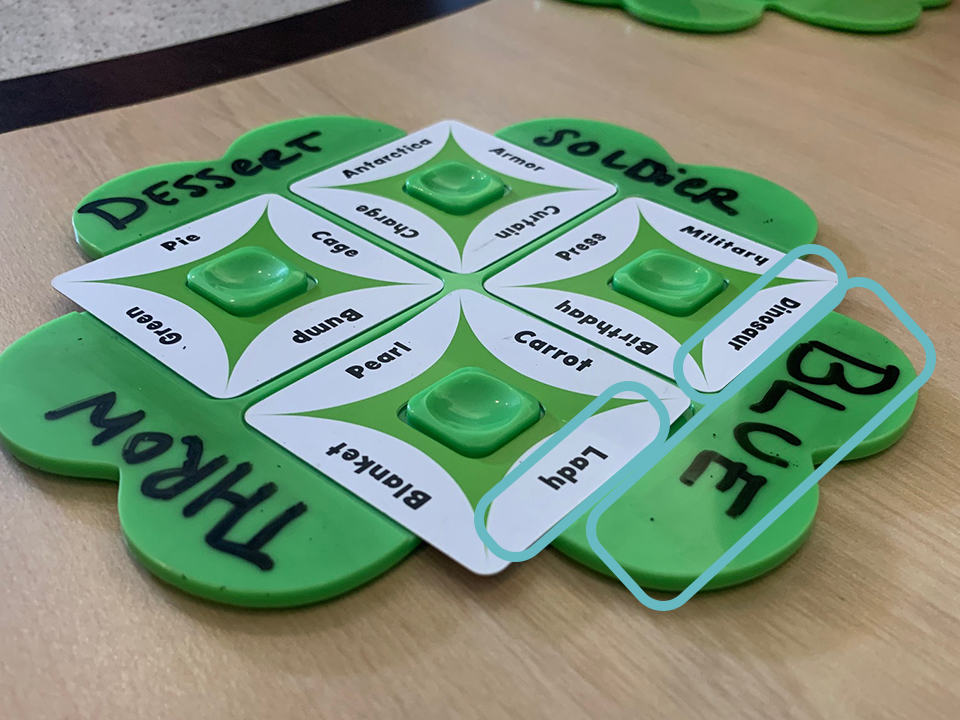
12. So Clover
So Clover, to me, is very similar to Codenames.
It’s a word association game except it is cooperative. That means everyone is essentially playing for the same team.
Each player receives a four-card clover and then comes up with one-word clues that connect the two outer-edged words.
Then, they remove the cards and give the empty clover (with the written clues) back to their teammates, who will then put the clover back together.
It’s a lot of fun. If you like Codenames, you’ll appreciate the similar wordplay mechanism that So Clover offers.
This game plays 3-6 players and currently rocks a 4.8-star review on Amazon.
How it’s similar to Codenames: It involves one-word clues.
How it’s different: It’s cooperative.
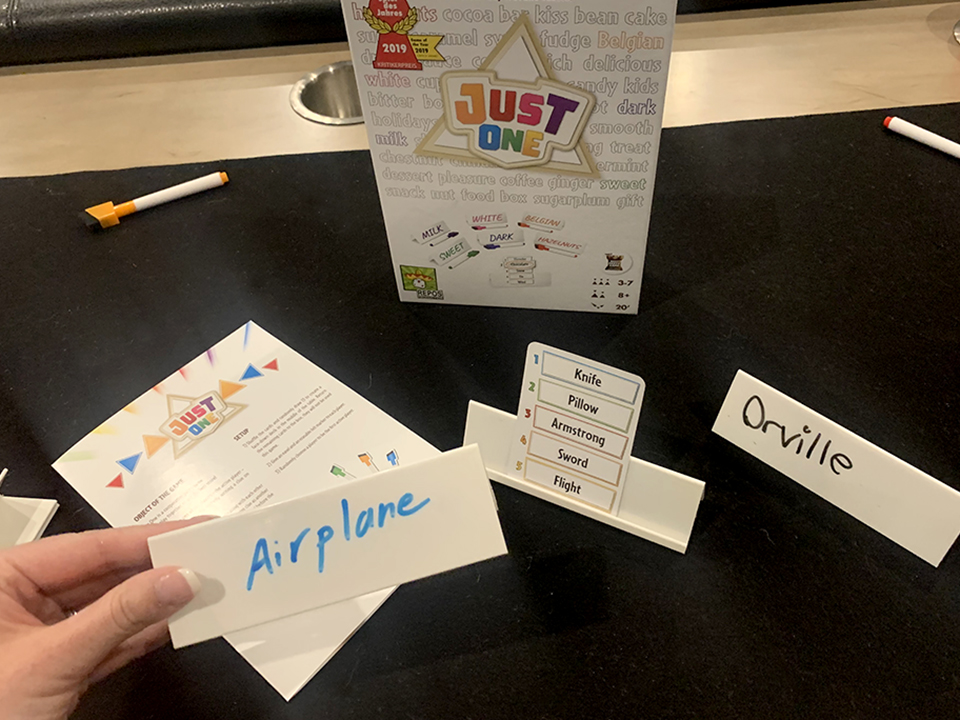
11. Just One
Just One is kind of like So Clover’s mama.
It’s another mystery word game that is cooperative. Teammates draw a clue card that contains mystery words. Your teammates will each write down a one-word clue to get the active player to guess the secret word.
However, the catch is that if a clue giver writes down the same clue as another player, those clues are “bad” and are omitted. The guesser will have fewer clues to work with to guess the correct answer.
Just One plays 3-7 people and also has a 4.8-star review on Amazon.
How it’s similar to Codenames: It involves one-word clues.
How it’s different: It’s cooperative.

10. Wavelength
Players will take turns spinning a dial, which starts out covered and is later revealed.
The active player will draw a card that has a dichotomy. For example, it may say “too hot” and “too cold”. That player will take a look at where the dial landed and then come up with a clue that matches.
The dial is “covered” and handed back to the teammates, who will guess where the dial is. How close their placement is will determine how many points they win.
The team who gains their slotted victory points first wins. Also, the game can play a large number of people, but it’s recommended for 2-12 players.
Wavelength currently has a 4.7-star review on Amazon.
How it’s similar to Codenames: It involves wordplay and clues.
How it’s different: It comes with a unique dial and can be subject to opinion.
9. Hues and Cues
Like Codenames, but with colors.
This game has a similar mechanism to Codenames in that players will use single and two-word clues to get others to guess a specific hue from the 480 color squares on the game board.
The game accommodates 3-10 players. Hues and Cues has a 4.7-star rating on Amazon.
How it’s similar to Codenames: It involves clues.
How it’s different: It uses colors instead of words.
8. Dixit
Dixit is a game of storytelling and guesswork. Each round, a player draws a picture card and says a sentence or phrase about the image without showing the card.
All other players then play a picture card from their hand they feel matches the sentence.
The cards are shuffled together. Then, cards are revealed, and players vote on which card was the original card. The player whose card is chosen scores points.
It’s described as a game of art and language. Overall, it’s a beautiful game, but admittedly, I rarely get to play it because my husband is not a fan. He thinks it is too subjective.
Dixit currently has a 4.8-star review on Amazon.
How it’s similar to Codenames: Involves word clues and guessing.
How it’s different: Dixit has picture cards that overall can be vague and subjective.
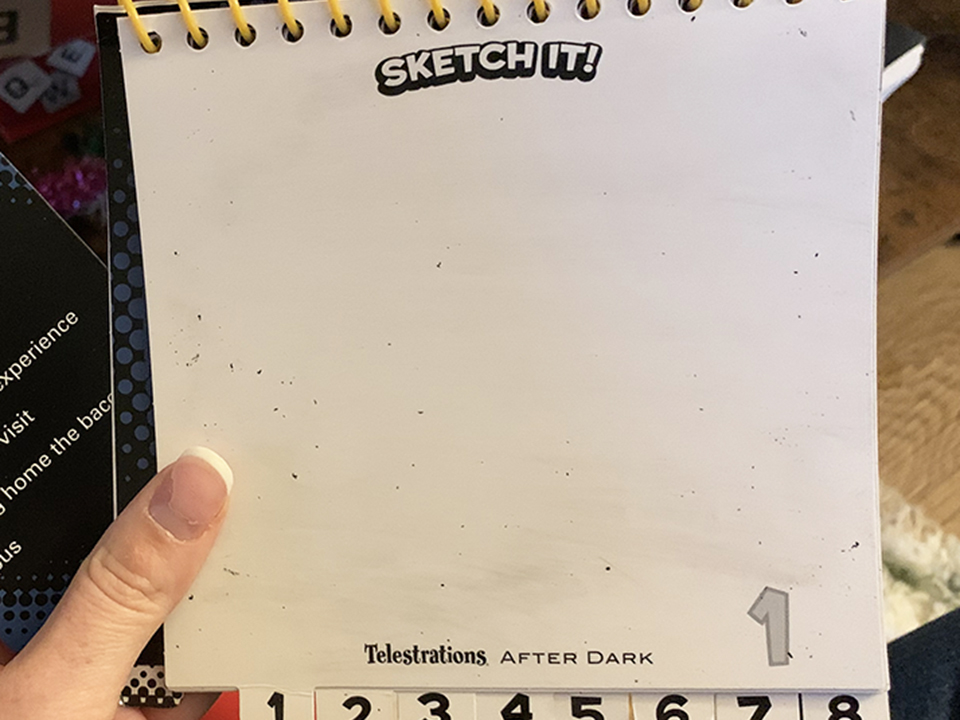
7. Telestrations
This one involves less word association and more “party”. Telestrations acts like a mix between Pictionary and the Telephone Game.
Players begin with a prompt that they draw with a dry-erase marker. Then, the next player will write down their guess of what it is.
Another player will then draw the previous player’s guess. This cycles a couple of times until the dry-erase booklet makes it back to the original player, and everyone has a good laugh.
Honestly, this game has probably made me laugh the hardest of any party game I’ve ever played. It’s a bit of a different vibe than Codenames, but so much fun.
This game plays up to 8 players, but expansions are available. Telestrations has a 4.8-star review on Amazon.
How it’s similar to Codenames: It’s an easy party game.
How it’s different: It involves more drawing, and probably more laughs.
6. Werewords
Werewords is a party game that can play 4-10 people and only takes about ten minutes to play.
In the game, players guess a secret word by asking “yes” and “no” questions. The game is similar to Ultimate Werewolf because there will be secret identities who will be working for or against you.
It’s a good option to play if you have larger groups and comes with a free app.
How it’s similar to Codenames: It’s an easy party game.
How it’s different: It involves yes or no questions and hidden roles.
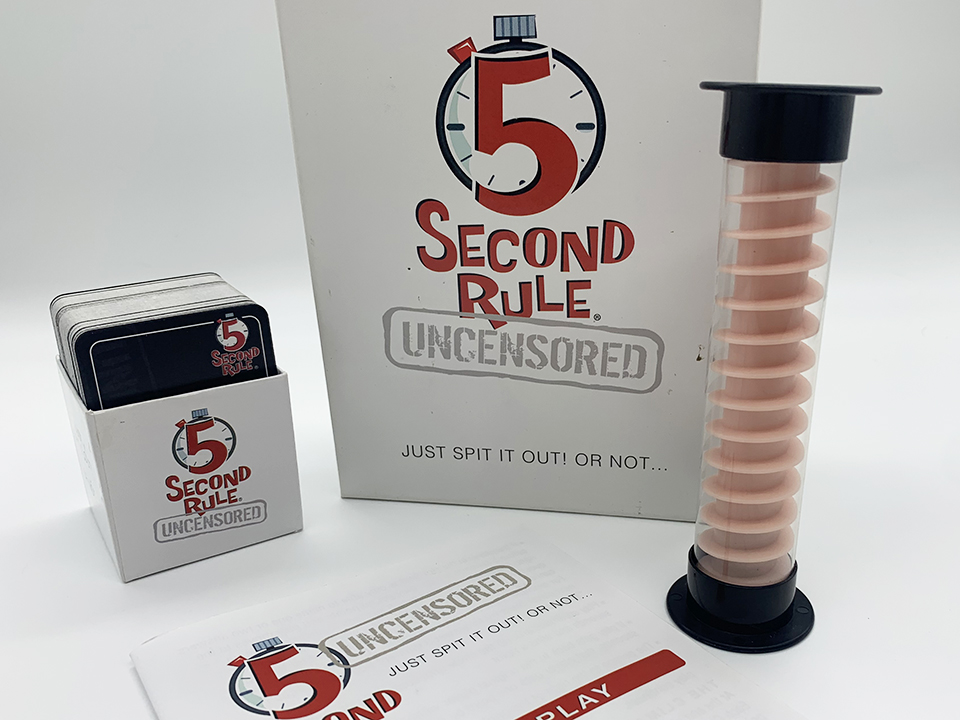
5. 5 Second Rule
Okay, we’re starting to get into less similar territory here. This game is a bit more loud and rambunctious than Codenames and may involve a lot of shouting.
But, it’s a party game and it’s about the easiest game to learn how to play.
In this simple game, players take turns drawing a card with a prompt. Then, they must say three things that fit the prompt within five seconds.
It’s a fun game that is a fast word party game.
Finally, it’s an easy game for anyone to play. There’s a family version and an “uncensored” version, and the latter is not suitable for younger players.
How it’s similar to Codenames: It’s an easy party game.
How it’s different: It doesn’t require much thinking.
Read Also: 11 party games like Cards Against Humanity, but better
4. Tags
Tags is a fast-paced party game that accommodates 2-4 players and has an average playtime of 30 minutes.
In the game, players collect marbles by finding words that correspond to a given letter and topic. The goal of the game is to find as many words as you can before the end of your turn.
It’s a fun word association game that can accommodate additional players if you play in teams.
The game has a 4.6-star rating on Amazon.
How it’s similar to Codenames: It’s a word association game.
How it’s different: It uses marbles and a time limit.
3. 25 Words or Less
This game is based on the popular TV game show with Meredith Vieira.
The rules are easy. Cluegivers bet on how many clues they need in order to get their teammates to guess five words. The bidding starts at 25.
Then, players give their teammates clues to try to get all the words on the card in as few words as possible.
The game currently has a 4.7-star review on Amazon.
How it’s similar to Codenames: It’s a word association game.
How it’s different: The game limits you in the number of clues you can use.
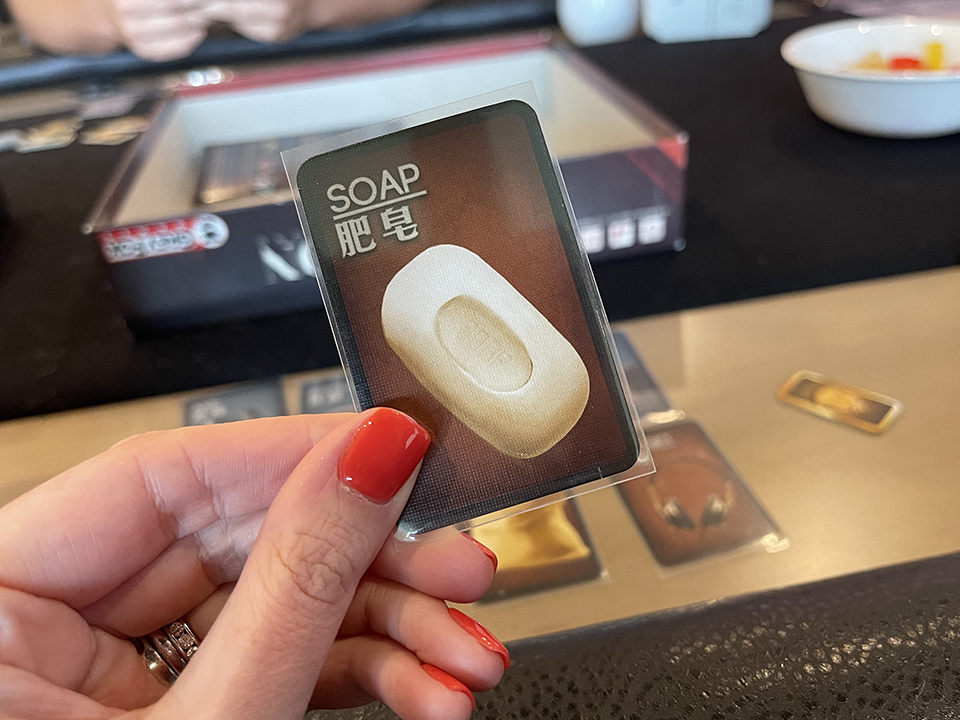
2. Deception (Hong Kong)
This game would be more similar to Codenames Pictures. Basically, in this game, players work to solve a crime and figure out who the “bad guy” is.
Each player will receive eight cards total, four of which represent a weapon and four of which represent evidence.
One of the players has committed a crime. The forensic scientist will offer clues about the correct set and help the other players crack the case. The detectives (the remaining players) will each make an accusation, trying to get the correct evidence and weapon combination.
The game accommodates 4-12 players. It currently rocks a 4.8-star review.
How it’s similar to Codenames: The game uses limited clues and guessing.
How it’s different: It offers a hidden roles element.
Read Also: 23 best board games under $20
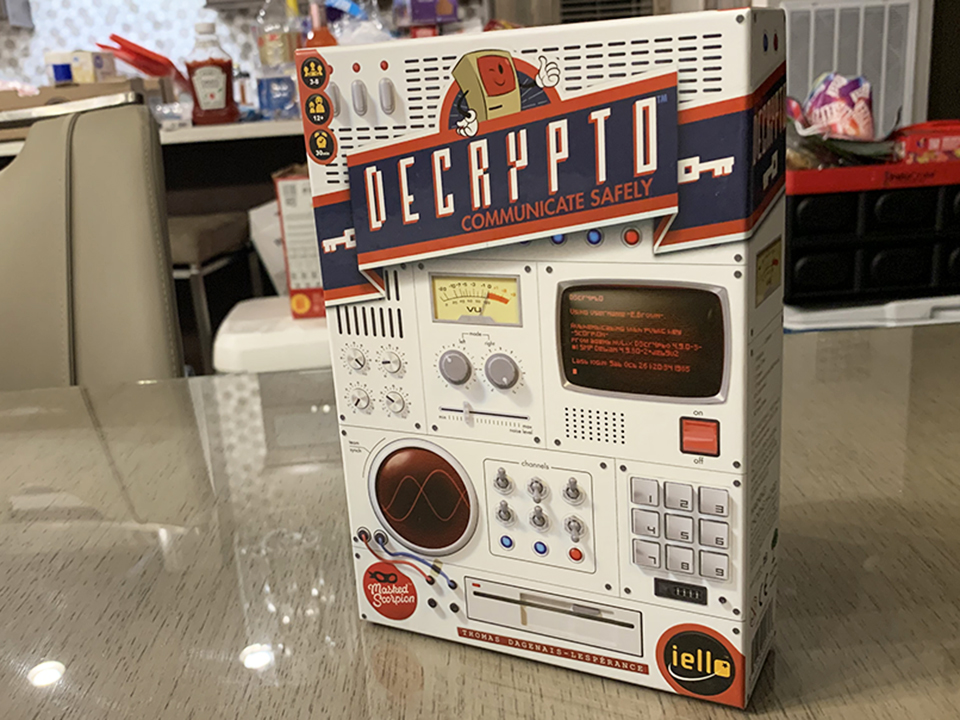
1. Decrypto
This one is very similar to Codenames but with a few more working parts.
In this game, players are broken up into two teams. Teams will receive a set of keywords that are inserted into “screens” along with a set of numbers.
Essentially, players must come up with clues that correspond to the keywords in order to correctly guess a set of numbers.
Ultimately, if you are looking for a level up from Codenames, it’s the perfect game for you.
Decrypto currently rocks a 4.7-star rating on Amazon.
How it’s similar to Codenames: It involves word clues.
How it’s different: Has a few more layers.
Do you have any games that are similar to Codenames that you want to try on your next board game night? Let me know in the comments below.

